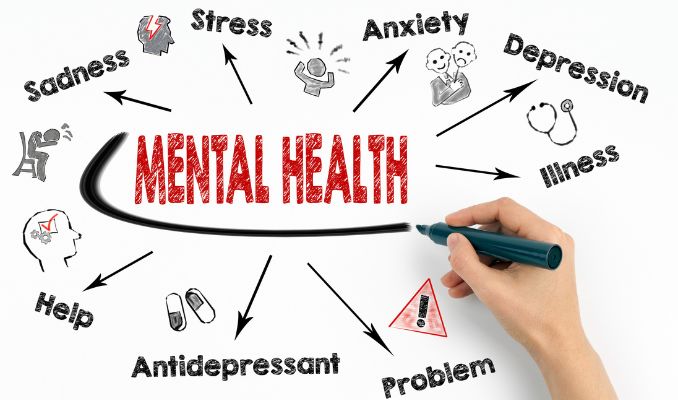The number of mental health issues is growing, with anxiety vs depression becoming common illnesses. Despite their similarities, it is critical to distinguish their individual qualities to provide appropriate support and treatment. Anxiety is characterized by constant anxiety and heightened alertness, whereas depression is characterized by lethargy and a lack of drive.
Recognizing these differences is critical to establishing therapies. Promoting awareness and knowledge of the distinct problems caused by each diseasae is critical to establishing a compassionate and educated approach to mental health, ensuring that individuals receive the specific support and treatment they deserve for their well-being.
What Is Anxiety?
Anxiety is a common response to stress or perceived threat characterized by feelings of apprehension, worry, or fear. It is a normal part of life, helping us focus and stay alert in challenging situations. However, when anxiety becomes excessive, persistent, or disrupts daily functioning, it might signal the presence of an anxiety disorder.
Physical symptoms such as sweating, racing heart, shortness of breath, and trembling may also accompany these feelings of anxiety.
Anxiety Can Manifest In Various Forms:
- Generalized Anxiety Disorder (GAD): Excessive worry about everyday life events, often with no specific cause.
- Panic Disorder: Sudden and extreme episodes of fear, with physical symptoms like rapid heart rate and difficulty breathing. situations
- Social Anxiety Disorder: This is the technical term for the fear of negative evaluation in social settings.
- Specific Phobias: An irrational dread of certain things or experiences, for example, heights, flying, or animals.
- Obsessive-Compulsive Disorder (OCD): Intrusive, unwanted thoughts (obsessions) and mental acts (compulsions) to ease anxiety.
- Post-Traumatic Stress Disorder (PTSD): Anxiety and distress following exposure to a traumatic event.
Anxiety disorders can affect thoughts, emotions, and physical well-being. Not all anxiety needs a doctor’s help, but if yours is persistent or severe, a mental health professional can be a great resource.
What Is Depression?
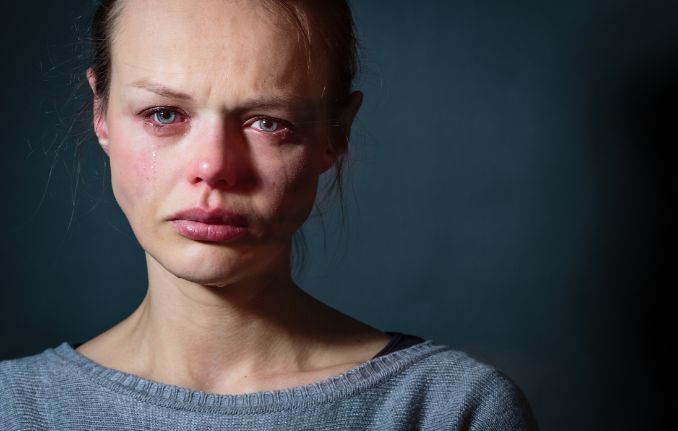
Depression can hijack your emotions and make it hard to enjoy life. It’s more than just feeling bummed, it affects everything from how you think to how you move.
Depression can vary in severity, and its causes are often a combination of psychological, biological, and environmental factors. It’s a treatable condition, with therapies such as counseling, medication, and lifestyle changes being effective in managing symptoms.
Key Features Of Depression Include:
- Persistent Low Mood: Feeling sad, empty, or irritable most of the day, nearly every day.
- Loss of Interest or Pleasure: Diminished interest or pleasure in activities that were once enjoyable.
- Changes in Sleep Patterns: Insomnia or increased need for sleep.
- Changes in Appetite or Weight: Significant weight loss or gain, or changes in appetite.
- Fatigue or Loss of Energy: Tiredness or lacking energy even after rest.
- Difficulty Concentrating: Trouble focusing, making decisions, or remembering things.
- Feelings of Worthlessness or Guilt: Dwelling on flaws and feeling overly responsible.
- Suicidal Thoughts: Thinking about death or suicide attempts.
Anxiety Vs Depression Symptoms
Symptoms of mental disorders, including mood disorder, depression, and anxiety, manifest in diverse ways that affect mental and physical well-being. Common signs of anxiety encompass excessive worry, restlessness, irritability, muscle tension, and disrupted sleep patterns. Depression symptoms involve persistent sadness, feelings of hopelessness, changes in sleep, appetite, difficulty concentrating, and fatigue.
Recognizing these indicators is crucial, as they signify the presence of mental health conditions. Seeking support from friends, family, or mental health professionals is essential for understanding and effectively managing these challenges.
What Causes Anxiety?
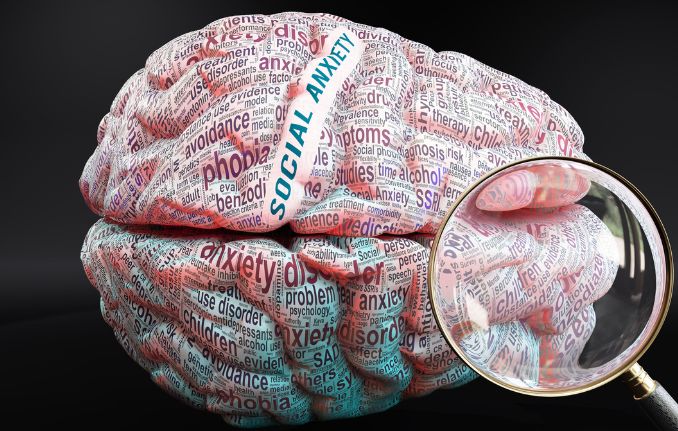
Anxiety is a complex phenomenon influenced by various factors, both biological and environmental. In the brain, it’s often associated with an imbalance of neurotransmitters, which are chemicals that transmit signals between nerve cells.
Here are some key factors related to anxiety in the brain:
1. Neurotransmitter Imbalance
Shifts in the levels of neurotransmitters like dopamine, serotonin, and gamma-aminobutyric acid (GABA) can contribute to anxiety. These chemicals are crucial in regulating mood and emotional responses.
2. Amygdala Activation
The amygdala is a part of the brain responsible for processing emotions, including fear. In individuals with anxiety disorders, the amygdala may be overly sensitive or reactive, leading to heightened emotional responses.
3. Genetic Factors
There is proof to suggest a genetic predisposition to anxiety disorders. Certain genes may influence the development of anxiety, making some individuals more susceptible than others.
4. Brain Structure
Structural differences in the brain, such as alterations in the size or function of specific areas like the prefrontal cortex and hippocampus, have been linked to anxiety disorders.
5. Hormonal Factors
Hormones, particularly cortisol (the stress hormone), play a role in the body’s “fight or flight” response. Chronic stress disrupts hormone regulation, particularly hormones involved in stress response, contributing to anxiety
6. Environmental Factors
Life challenges, chronic stress, and environmental factors can also impact the brain’s response to stressors, potentially leading to the development or exacerbation of anxiety disorders.
It’s important to note that anxiety is a multifaceted condition, and individual experiences may vary. The interplay of genetic, biological, and environmental factors contributes to the complexity of anxiety disorders.
What Causes Depression?
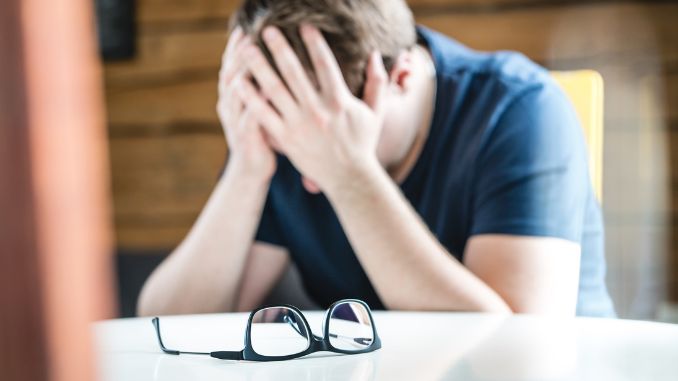
Depression is a multifaceted condition with no single known cause. However, there are several contributing factors.
- Biological Factors: Imbalances in neurotransmitters like serotonin, dopamine, and norepinephrine can play a role. Genetics also contribute; individuals with a family history of depression may be more susceptible.
- Brain Structure and Function: Changes in the structure or function of certain brain areas, including the hippocampus and prefrontal cortex, have been linked to depression.
- Hormonal Changes: Fluctuations in hormones, particularly during periods such as puberty, pregnancy, and menopause, can contribute to depression.
- Life Events and Stress: Traumatic events can trigger or contribute to depression. These stressors may overwhelm coping mechanisms.
- Medical Conditions: Certain medical conditions, such as chronic illnesses or neurological disorders, can increase the risk of depression.
- Personality Factors: Certain personality traits, like a tendency toward pessimism or low self-esteem, may be associated with a higher risk of depression.
- Social and Environmental factors: Isolation, lack of social support, and exposure to violence or abuse can contribute to depression. Socioeconomic factors and cultural influences also play a role.
- Substance Abuse: Substance misuse, including alcohol and drug abuse, can contribute to or exacerbate depression.
Anxiety Vs Depression Similarities
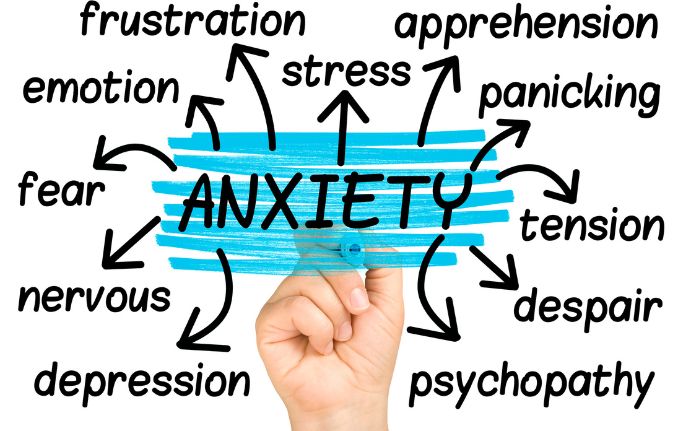
When individuals grapple with anxiety or depression, the repercussions extend beyond mere emotional states, significantly influencing their daily existence, interpersonal relationships, work performance, and overall well-being. Recognizing the common signs prevalent in both anxiety and depression is imperative for comprehensive understanding and effective support.
Disturbances in sleep patterns, manifesting as insomnia or excessive sleeping, and alterations in appetite and weight are frequently observed in individuals contending with these mental health conditions. A notable revelation is the coexistence of anxiety vs depression in many cases, suggesting shared intricacies within the mind that render individuals susceptible to both conditions simultaneously.
This intertwined nature underscores the complexity of mental health disorders, emphasizing the need for nuanced approaches in diagnosis and treatment. Within the realm of mental health, major depressive disorder and anxiety are classified as distinct yet interconnected conditions. This classification aligns with diagnostic criteria the American Psychiatric Association delineated in the Diagnostic and Statistical Manual.
Understanding these shared aspects contributes to the development of tailored interventions and support mechanisms for individuals navigating the intricate landscape of both depression and anxiety. By acknowledging the overlap of symptoms and vulnerabilities, mental health treatment can be refined to address the multifaceted nature of these conditions, fostering enhanced outcomes and a more comprehensive strategies to mental well-being.
Impact On Daily Life: How Anxiety And Depression Affect Individuals Differently
Major depressive disorder and anxiety symptoms can significantly impact various aspects of an individual’s daily life. Both depression and anxiety can hinder functioning, work performance, and overall quality of life, affecting individuals uniquely. A key shared symptom is disruptions in sleep patterns, leading to insomnia or excessive sleeping.
Furthermore, major depressive disorder and anxiety often coexist, with approximately half of those diagnosed with one meeting the criteria for the other. This points to shared vulnerabilities and underlying mechanisms, emphasizing the interconnected nature of depression and anxiety as mental health conditions.
Managing Anxiety And Depression
Stress Management Techniques
- Utilize deep breathing exercises to promote relaxation.
- Practice yoga or meditation to reduce anxiety and stillness in the mind.
- Regular physical exercise aids in stress reduction.
Routine And Relaxation
- Create a structured routine to provide a sense of stability.
- Try relaxation techniques like progressive muscle relaxation to unwind.
- Incorporate enjoyable activities to offer relief from anxiety.
Self-Care Practices
- Maintain a healthy lifestyle with balanced nutrition.
- Regular exercise contributes to mood improvement.
- Do things that bring joy and fulfillment.
Support System
- Build a strong support system with friends and family.
- Seek professional help through therapy or counseling.
- Adhere to prescrimmmmmmf reducebed treatment plans for comprehensive management.
Conclusion: Addressing The Distinctions Between Anxiety Vs Depression

Anxiety and depression are common mental health problems that can have a substantial influence on people’s lives. While they may have some similarities, it is critical to understand each disorder’s characteristics to give proper support and therapy.
Understanding the nuances between anxiety vs depression allows for accurate diagnosis, tailored therapy, and improved outcomes. By unraveling the similarities and unveiling the distinctions, we can shed light on these commonly misunderstood disorders and foster a greater understanding and empathy toward those battling within.
Recognizing the differences between anxiety and depression not only helps individuals affected by these disorders but also promotes a society that is better equipped to provide support and create an environment conducive to mental well-being. So, let us continue to educate ourselves, seek help when needed, and work towards a world where mental health is prioritized and understood.
Check out our 14-Day Stress Reduction just for you!
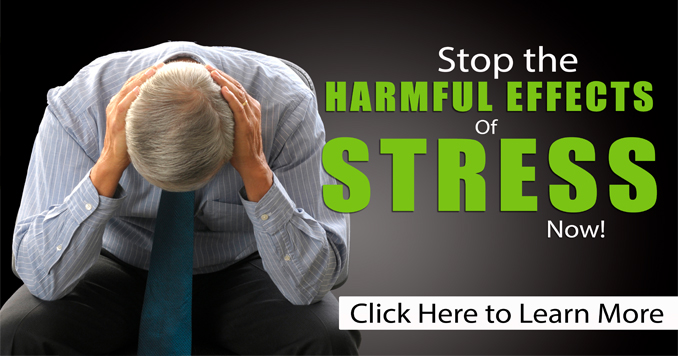
Frequently Asked Questions
Can You Have Anxiety And Depression At The Same Time?
Yes, it’s possible to have anxiety and depression at the same time. Many people experience a combination of both conditions, and this is often referred to as comorbid anxiety and depression. Having both anxiety and depression can make it more demanding for individuals to cope with their emotions and daily life. The symptoms of anxiety, like excessive worry and fear, can coexist with the symptoms of depression, including feelings of sadness and hopelessness.
It’s important for individuals facing these challenges to seek help from mental health professionals, as they can provide guidance and appropriate treatments to address both conditions. Understanding that anxiety and depression can occur together highlights the complexity of mental health, and a comprehensive approach to treatment is often beneficial.
How To Calm Down Anxiety?
To calm anxiety, practice deep breathing and mindfulness, as well as progressive muscle relaxation. Visualize positive outcomes and limit stimulants like caffeine. Regular exercise, a balanced lifestyle, and seeking support from others are crucial. Grounding techniques and mind-body practices such as yoga can also be effective. Experiment to find what works best for you, and consult a mental health professional if needed for personalized guidance.
What Causes Anxiety In The Brain?
Far away, behind the word mountains, far from the countries Vokalia and Consonantia, the blind texts live. Separated, they live in Bookmarksgrove, right at the coast of Semantics, a large language ocean.
How Do I Train My Brain To Stop Anxiety?
Train your brain to ease anxiety by practicing deep breathing, mindfulness meditation, and positive self-talk. Incorporate progressive muscle relaxation, set realistic goals, and establish a routine for stability. Reduce stimulants, exercise regularly, prioritize adequate sleep, and consider professional support through therapy. Consistent practice of these strategies helps reshape your brain’s response to anxiety over time. Be patient and seek help when needed for a personalized approach to managing anxiety effectively.
Feeling stressed is an emotional, and sometimes physical response to the life’s daily demands. This can include career pressure, parenting struggles, financial responsibilities, illness, injuries, relationships and more. You can even feel stressed by something as seemingly small as a traffic jam that is making you late for work.

Rick Kaselj MS, is a leading kinesiologist and injury specialist as well as co-creator of the best-selling Unlock Your Hip Flexors program. Rick creates exercise programs that help people heal injuries and eliminate pain, so they can go back to living a full, active, healthy life.

